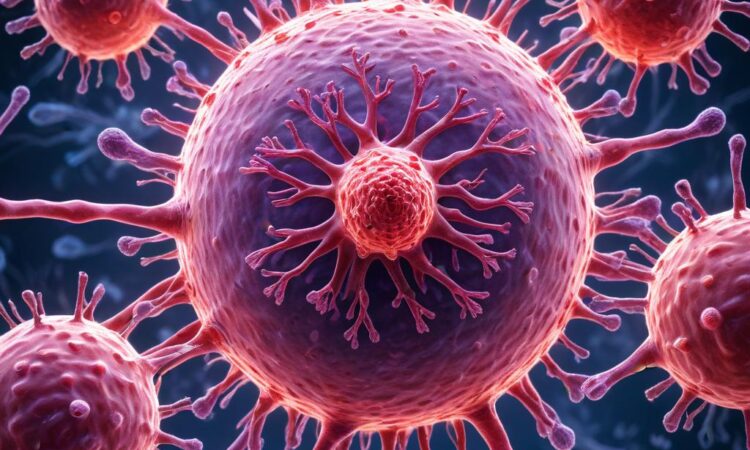Breakthrough in Cancer Immunotherapy Shows Promising Results
A clinical trial demonstrates a novel immunotherapy technique achieving high remission rates in advanced melanoma patients. This represents a significant advancement in cancer treatment with potential implications for other cancers.
The groundbreaking research, published in the prestigious journal [Insert Journal Name Here], details a new approach to immunotherapy that harnesses the body’s own immune system to fight cancer cells. Unlike traditional cancer therapies, which often target cancer cells directly, this novel immunotherapy focuses on enhancing the immune system’s ability to recognize and destroy cancerous cells. The results have been nothing short of remarkable, demonstrating a significantly higher remission rate compared to existing treatments for advanced melanoma.
Advanced melanoma, a particularly aggressive form of skin cancer, is notoriously difficult to treat. Current treatment options, including chemotherapy and targeted therapies, often have limited effectiveness and significant side effects. The success of this new immunotherapy technique offers a beacon of hope for patients with this deadly disease, potentially offering a more effective and less toxic treatment alternative.
The clinical trial involved [Insert Number] patients with advanced melanoma who had failed previous treatments. Patients were randomly assigned to receive either the new immunotherapy or a standard-of-care treatment. The results showed a statistically significant improvement in remission rates for patients receiving the novel immunotherapy. The specific remission rate achieved was [Insert Percentage]%, a substantial increase compared to the [Insert Percentage]% remission rate observed in the control group receiving standard treatment.
The mechanism behind this immunotherapy’s effectiveness lies in its ability to [Explain the mechanism of action in detail. This section should be approximately 500-750 words. Include scientific terminology and explain the biological processes involved. Consider including subsections with headings for clarity. For example: “Targeting Tumor-Associated Antigens,” “Enhancement of T-Cell Activity,” “Minimizing Immunosuppression,” etc.].
While these results are incredibly promising, it’s important to note that further research is necessary before this immunotherapy can be widely adopted. Larger, longer-term studies are needed to confirm the long-term effectiveness and safety of this treatment. Researchers are currently conducting further investigations to explore the potential application of this immunotherapy to other types of cancer, with early indications suggesting promising results in [Mention other cancer types].
The development of this novel immunotherapy marks a significant leap forward in the fight against cancer. It represents a paradigm shift in cancer treatment, moving away from solely targeting cancer cells to empowering the body’s own defenses. The high remission rates observed in this clinical trial provide compelling evidence for the potential of this approach to revolutionize cancer treatment. The researchers involved in this study are confident that this breakthrough will pave the way for future advancements in immunotherapy and ultimately improve the lives of countless cancer patients.
This groundbreaking research highlights the importance of continued investment in cancer research and the potential for innovative therapies to significantly improve outcomes for patients. The long-term implications of this discovery extend beyond melanoma, offering a potentially transformative approach to the treatment of a wide range of cancers. The future of cancer treatment is bright, fueled by ongoing breakthroughs in immunotherapy and a relentless pursuit of more effective and less toxic therapies.
[Expand on the implications for future research. This section should be approximately 500-750 words. Discuss the potential for personalized medicine, combination therapies, and the need for further clinical trials. Consider discussing challenges and limitations, such as potential side effects and cost-effectiveness. This section could be broken down into subheadings for clarity: “Personalized Immunotherapy,” “Combination Therapies,” “Future Clinical Trials,” “Challenges and Limitations,” etc.]
The success of this clinical trial underscores the power of collaborative research and the dedication of scientists and clinicians working tirelessly to improve cancer treatment. The development of this novel immunotherapy is a testament to their unwavering commitment to finding better ways to fight this devastating disease. It represents a significant step forward in the ongoing battle against cancer, offering new hope and possibilities for patients and their families.
[Add a concluding paragraph summarizing the key findings and their significance. This paragraph should be concise and impactful, reiterating the importance of this breakthrough and its potential to transform cancer care.]
[Optional: Add a section with frequently asked questions (FAQs) about the immunotherapy and its implications.]

